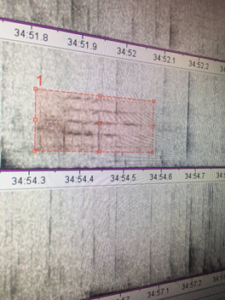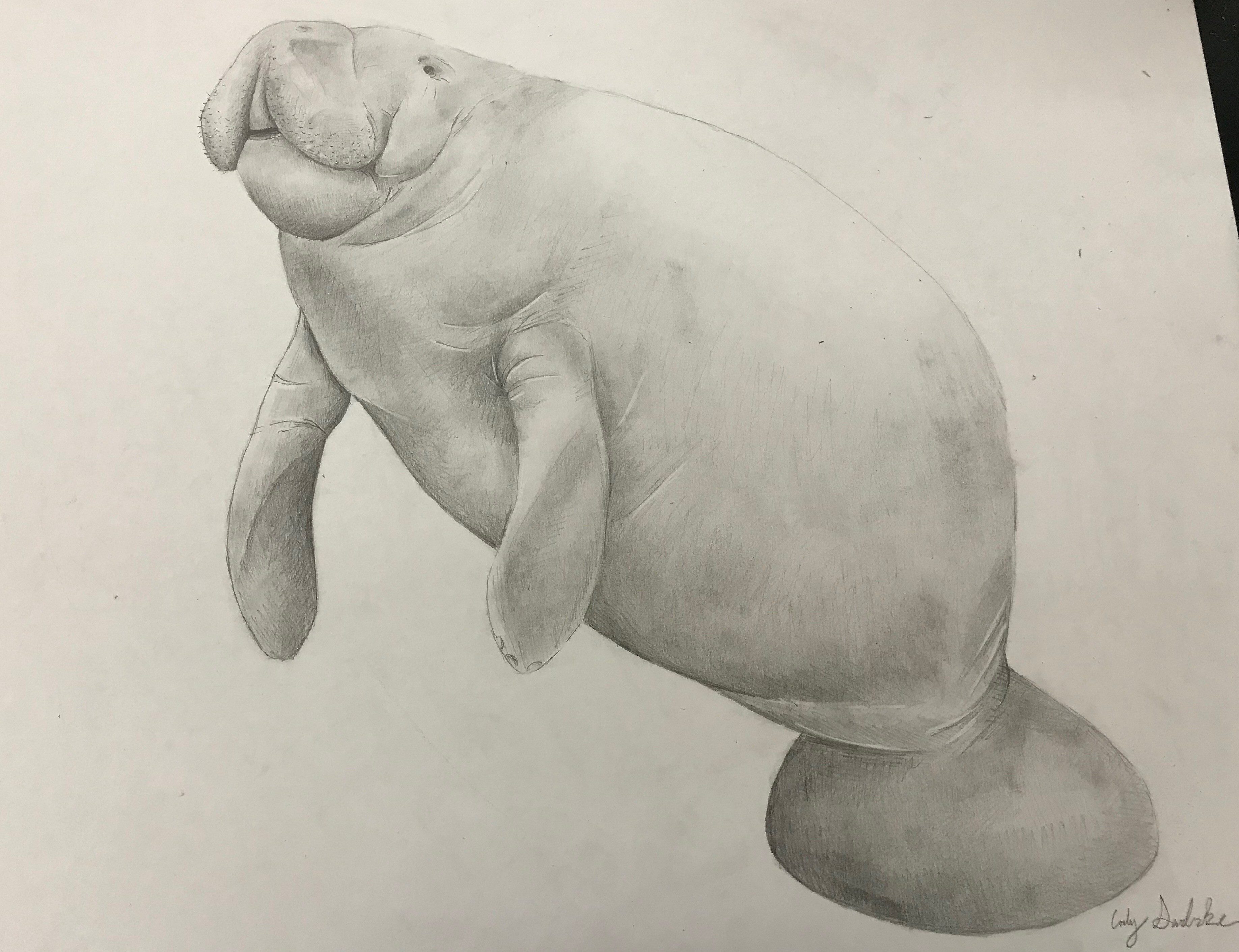Manatees are coastal marine mammals which habitat overlaps with human activities. In Central American and the Caribbean manatee populations have declined due to habitat loss, hunting, and boat collision. Carly’s project aims to use passive acoustic monitoring data to study the acoustic behavior and activity of manatees in Belize. This is not a simple task, as Carly has to comb hours and hours of recordings before finding a manatee call. Her research can help us determine if sound can complement population monitoring efforts in the region. \
My research project is to describe the acoustic repertoire of the Antillean Manatee using over 50 hours of passive acoustic recordings taken throughout 2018 at a resting hole about 6 miles from the coast of Belize. My work is in collaboration with PhD student Eric Angel Ramos, who is studying the behavioral responses of manatees, dolphins, and whales to being observed by drone. In the future, the sounds I’ve selected may be paired with his data to make conclusions about vocal behavior as well as observable physical behavior. What I’m aiming to describe in this project is the vocal parameters of their sounds (min/max/peak frequency, duration, power), unique qualities or “types” of sounds, and the factors (such as time, temperature, season) that affect these qualities or the frequency of the sounds themselves.
But in order to describe manatee sounds, I first had to find them. Identifying manatee sounds was the first real challenge I faced in this research project, as passive acoustic monitoring data is a lot noisier and more confusing that just holding up a microphone to a manatee. On top of having to learn how to use RAVEN, an acoustics program, I had to learn how to recognize and filter through many different types of sounds in order to find my first manatee squeak. After going through ten hours of data in ten second increments, after many hours of just sounds of snapping shrimp, ocean waves, and the occasional fish, I found my first manatee.
Despite my initial challenges, the number of identified manatee sounds has steadily grown over time, so now the time to think about data analysis is rapidly approaching. Very little is known about the possible types of vocalizations made by manatees or what factors affect them. There is not a universally accepted language for describing types of manatee sounds, so much of the data analysis will focus on the vocal parameters themselves, rather than categorizations of sounds and their social contexts, as I had originally hoped to study. It just goes to show that throughout the research process, your question can change to better reflect the data and present scientific context. The thought that I could potentially contribute to this field is both exciting and terrifying. In spite of my fears and challenges, I know the final product will both be valuable as data for the field of marine mammal bioacoustics as well as experience with the research process. While manatees admittedly do not have the most complex social structure or acoustic behavior, this research has opened my eyes to new possibilities of incorporating animal behavior with ecology and conservation actions.
